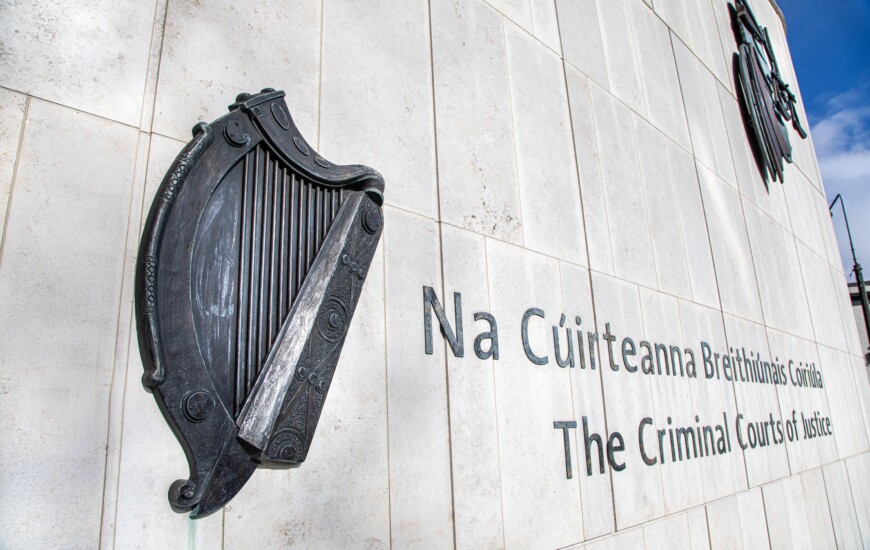Solicitor and former developer gets suspended sentence and fine for attempted deception
Dublin People 19 Dec 2024
By Natasha Reid
A Wicklow solicitor and former developer has received a suspended sentence and a €20,000 fine for attempted deception, arising out of the non-payment of the financial contribution owed to the local authority on an apartment complex he developed.
Patrick O’Toole (63) of The Old Rectory, Wicklow Town, had pleaded not guilty to a total of six counts at Dublin Circuit Criminal Court. Following a trial, a jury found him not guilty of a single count of corruption, but guilty of three counts of deception and two counts of attempted deception.
On the corruption count, it was alleged that on an unknown date in the summer of 2006, he procured or counselled the then Wicklow Town Clerk to furnish a letter incorrectly stating that he had paid the €64,840 in financial contributions the accused owed to Wicklow Town Council for the development of an apartment complex in the town.
The former clerk, Frank O’Toole, was previously given a suspended sentence and fined €10,000 for corruption after being convicted of furnishing the letter, which read: “I wish to confirm that the financial contribution in respect of this development has been paid.”
The sentencing judge in that case noted that there was no evidence that Frank O’Toole had benefitted from the offence.
The two men are not related, and Frank O’Toole, who is now in his 70s, was a State witness in the recent trial against Patrick O’Toole.
The three counts of deception against Patrick O’Toole alleged that he had used the false letter to dishonestly induce solicitors acting for purchasers of a number of the apartments to complete the purchases. These related to dates in 2006, 2007 and 2008.
There were two counts of attempted deception, one in 2008 and one in 2012 in which it was alleged that he attempted to dissuade Wicklow Town Council from seeking the money by sending the same false letter.
He also suggested that the council contact Frank O’Toole himself about the matter. The council did, and that led to the garda investigation.
Frank O’Toole told the solicitor’s trial that he did not want to supply the letter for the defendant, but did so as he believed that the money would be paid after the sale of the apartments.
“I knew he was a solicitor, a man of honour, a man I trusted. I couldn’t entertain the idea that he wouldn’t honour a commitment to pay,” testified the now retired Frank O’Toole. “We had a financial impasse here. If I could give him a letter, he’ll get his conveyancing done, the council would get their money and the people would get their houses.”
Patrick O’Toole maintained his innocence when interviewed by gardai, and said that he had not understood it to be a false letter. A number of solicitors from the local area also gave evidence of his good character.
At sentencing on Thursday, Detective Sergeant Donal O’Sullivan gave evidence that Partrick O’Toole had since paid the full amount to the local authority. This was an overpayment, because the amount had been reduced by €10,000 when two of the apartments were sold to the local authority for social housing.
Michael O’Higgins SC, defending, told the court that the evidence had been that his client had sought ‘a letter of comfort’.
“That is a lawful demand,” he said. “This is most likely the reason why the acquittal occurred.”
“If Frank O’Toole had made this clear to the council in 2013 when asked, it would not be unreasonable to ask whether we would ever be here at all,” he added.
He said that his client was aware that sales could be closed on an undertaking that the financial contributions would be paid, and that this had been done for 20 years.
However, he said that the two attempted deceptions of the council were more serious.
“It could never have been more than a delaying tactic,” he said, referring to the fact that his client had actually sent the council to Frank O’Toole.
Counsel noted that the investigation had started in 2013 and had taken over 10 years to come to hearing.
“It has taken a huge toll on him,” he said, describing the ‘stress factor’ he had lived with as a heavy penalty.
“He has had this hanging over him for a quarter of his working life,” he added.
He noted that Frank O’Toole, who was convicted of a more serious offence, had received a suspended sentence.
“My client has paid a huge price,” he continued. “His lifetime’s work is marred. His standing is damaged. It seems very likely that his right to earn a livelihood will be taken away from him and an early retirement beckons.”
He said that there was no financial loss to the council, just a delay in payment, which was offset by the overpayment of €10,000.
“This is a case in which the court would be justified in imposing a non-custodial sentence and perhaps a fine,” he suggested.
He explained that his client was now financially stable, having been in NAMA for many years.
Judge Martin Nolan stated that to say this was an odd case would be an understatement.
Noting that Patrick O’Toole had no previous convictions, he said that he considered it very unlikely he would reoffend.
“He has led a good life up to now, has contributed to his community, and many people think very well of him,” he said. “I think it would be unfair to impose a custodial sentence.”
He imposed a sentence of 18 months on the 2012 attempted deception, but suspended it on condition he be of good behaviour. He fined him €20,000 on the 2008 attempted deception, giving him six months to pay, and took the other three counts into consideration.











